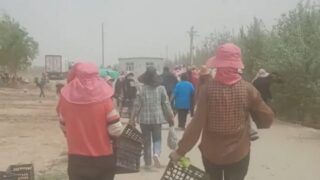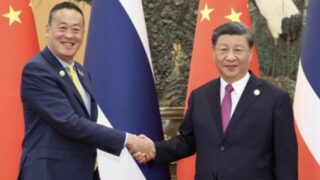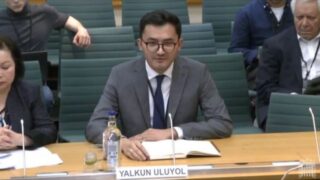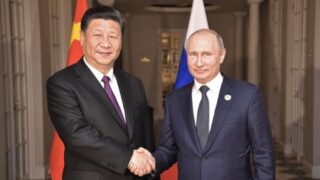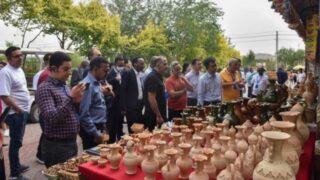Propaganda, incentives, and sheer coercion and blackmail have made the once rare interethnic marriages a daily occurrence.
by Ruth Ingram
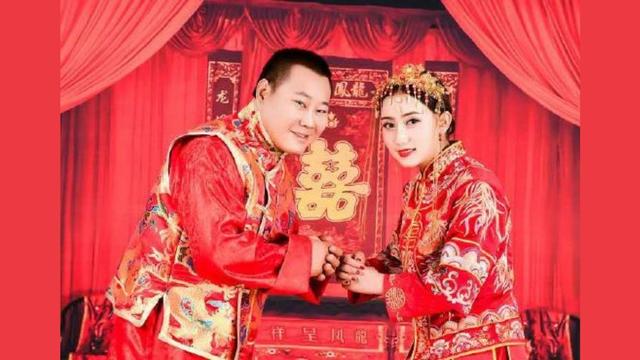

Annie Guli is happy to marry a Han Chinese boy. That might be true, but it might also be that through her popular YouTube videos, she is one of the many, twenty-something Uyghur so-called “influencers” paid by the Chinese government to push a Xi Jinping “New Era” view of ethnic harmony in the Uyghur heartland.
With half a million followers during her heyday three years ago, she is part of a band of “guerillas” fighting on the flanks in the “international arena of public opinion,” according to a recent report by the Australian Social Policy Institute, (ASPI); steered by Beijing to report as if they are independent voices for their people, whereas in fact nothing could be further from the truth.
They roam freely around the country, going where most people are not allowed to go and hold forth on every sensitive subject, disarmingly and frivolously, but giving more than a passing nod to the more sinister political agenda they are peddling. Their YouTube medium, banned in China, betrays the CCP goal of getting its message out to the world; that all is well in the Uyghur heartland.
Inter-ethnic marriage is alluded to more than once by Annie Guli who dismisses ethnic conflict with a giggle and is happy to say that most young girls her age would marry a Han boy—provided he was handsome. “Uyghur girls like Han guys very much,” she gossips to her Uyghur girlfriend on her video channel. “They are honest, they care for their families and they know how to love their wives.” “As long as he really loves her there’s no such thing as not being able to intermarry,” she concluded with a flounce.
There have been several attempts by the Chinese government to promote inter-marriage since 2014 when a pilot scheme in Xinjiang’s Bayinguoleng Autonomous Mongolian Prefecture offered significant cash incentives over five years and a number of other side benefits for interracial marriages.
The scheme was promoted again in 2017, when mixed couples were given gifts of 10,000 yuan ($1400) to tie the knot.
The Uyghur Human Rights Project (UHRP) has been concerned by this trend, particularly since the acceleration of President Xi Jinping’s Sinicization and assimilationist agenda, and the sending of one million government officials to live with Uyghur families, many of them run by single women following the incarceration of their menfolk. Its in-depth report entitled, “Forced Marriage of Uyghur Women: State Policies for Interethnic Marriage in East Turkestan,” exposes the vulnerability of Uyghur and Turkic women under these policies and urges an international probe into their consequences.
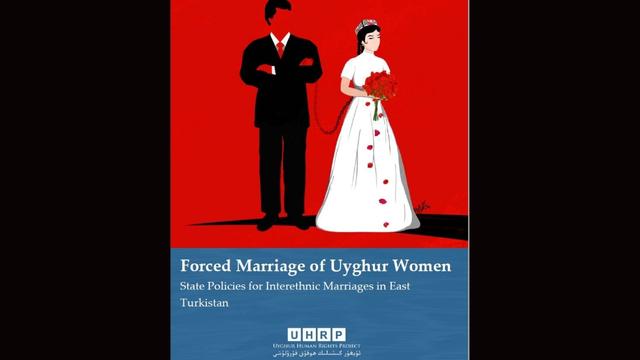

The deep dive into CCP-incentivized and forced interethnic marriages since 2014, examines Chinese state media and policy documents, evidence from government sanctioned profiles and testimonials, and accounts from women in the diaspora. The report unearths “compelling evidence to show that the Chinese Party-State is actively involved in carrying out a campaign of forcefully assimilating Uyghurs into Han Chinese society by means of mixed marriages.”
This practice adds fuel to the already significant fire of gender-based violence against Uyghurs and other Turkic peoples in the region that has been gathering momentum since 2014. Sexual assault, forced sterilization, forced use of birth control devices, forced abortions, and now a concerted push for forced marriages paint a graphic picture of the violence unleashed on Uyghur women that has left none untouched by CCP ambitions to dilute the indigenous population and assimilate them into mainstream Han Chinese culture, under the guise of “ethnic unity” and “social stability.”
A 2019 government propaganda video advertises Uyghur girls as “beauties” who grow up in a “special land” and whose “extra exotic style arouses many people’s curiosity.” The cultural and linguistic barriers of yester year need no longer pose a barrier to relationships since “love knows no race and no borders.”
Uyghur and Han intermarriage has been until recently extremely rare, given the underlying political tensions, religious differences and cultural gulf between them. In 2000 only one percent of Uyghurs were living in an interethnic household, numbers of interethnic marriages having declined during the preceding ten years.
Chen Quanguo, in 2014, while he was still Party Secretary of Tibet called on Party and government to become positive “matchmakers” and serve as a “bridge to connect soulmates,” and since 2018, according to the journal “Xinjiang Social Sciences” numbers of Uyghur-Han marriages have been increasing due to government “de-extremification work,” and attitudes are claimed to have become more positive.
A video ad in 2020 called for 100 Uyghur women to “urgently marry Han men” and against the axe of re-education camps and long prison sentences for those resisting government policy, few could demure. Despite long held prejudices and valid reasons for not wanting their children to marry into an atheistic, Han culture, Uyghur parents now hardly dare oppose.
Campaign for Uyghurs reported the dilemmas faced by Uyghur women who were “simply not in a position to reject a Han man who expresses interest in marrying her.”
Foreign Policy reported women being offered deals whereby if they married a Han man, a male relative would be released from detention.


“Uyghur women are in a disempowered position where they have no agency or choice. Refusing to participate in interethnic marriage is not a feasible option and comes with grave consequences,” say the authors of the report.
“Forced and incentivized marriages in the Uyghur Region are forms of gender-based crimes that violate international human rights standards. Government policies incentivizing and coercing intermarriage and other gender based-abuse only further the ongoing genocide and crimes against humanity being committed in East Turkistan,” says Omer Kanat, UHRP Executive Director.
Currently, governments have not imposed any sanctions in response to gender-based violence in East Turkestan, according to the report. Omar Kanat “urges the UN Committee on the Elimination of Discrimination against Women (CEDAW) to thoroughly examine evidence of gender-based crimes in its 2023 country review of China, and calls on the Chinese government to implement measures to effectively end and prevent such state-sponsored forced marriages and sexual violence.”



